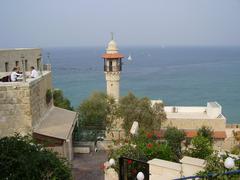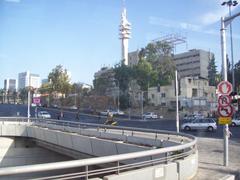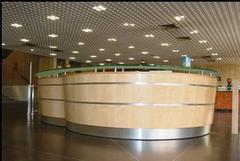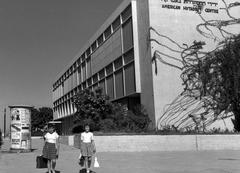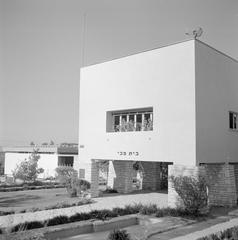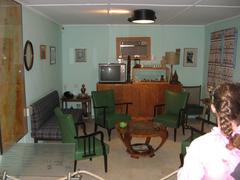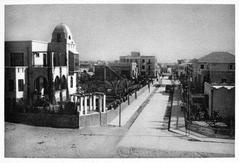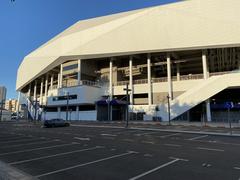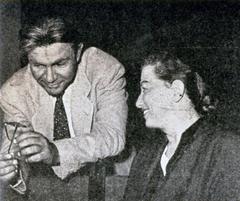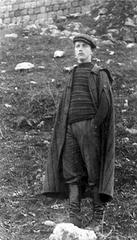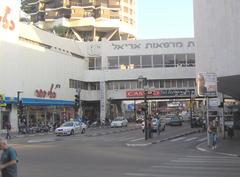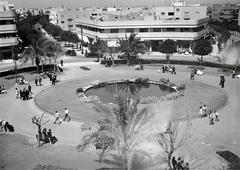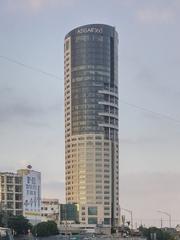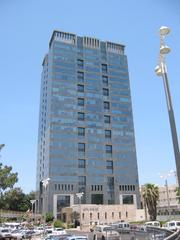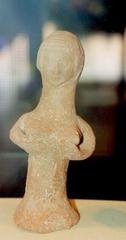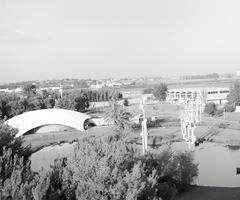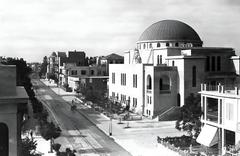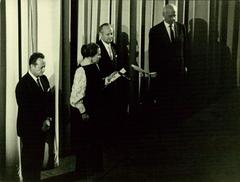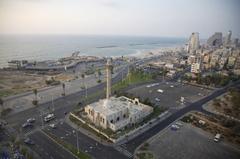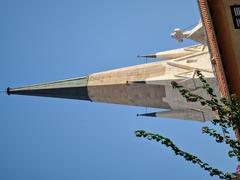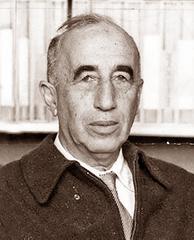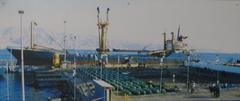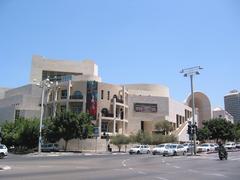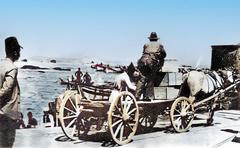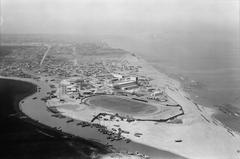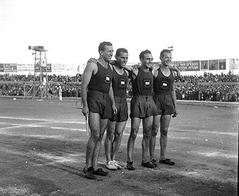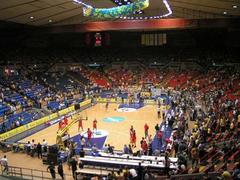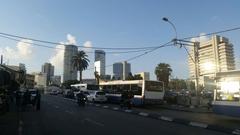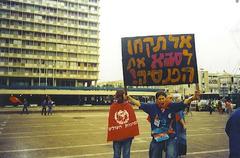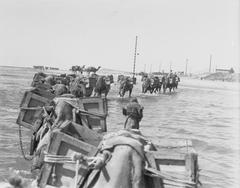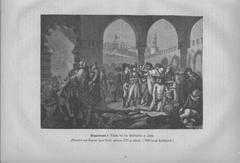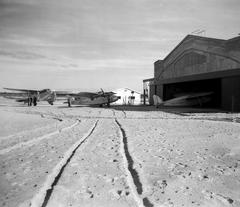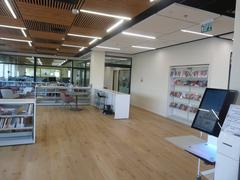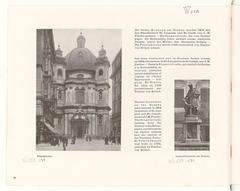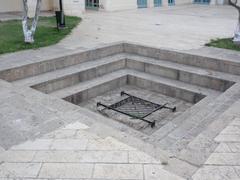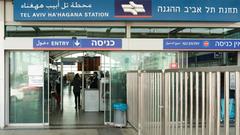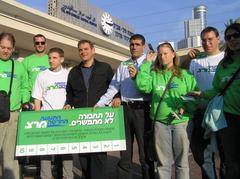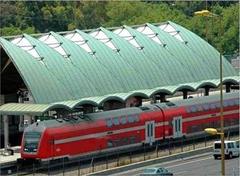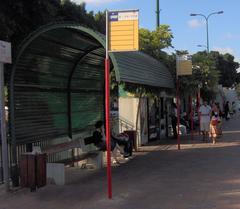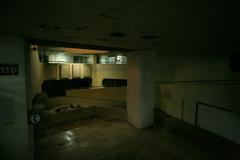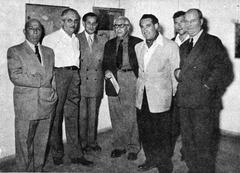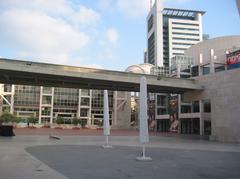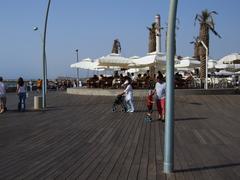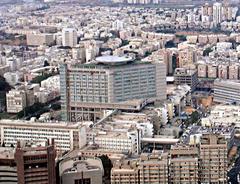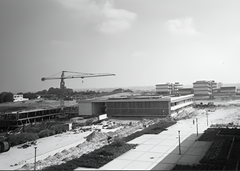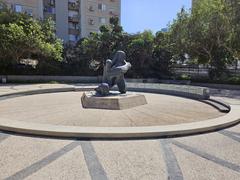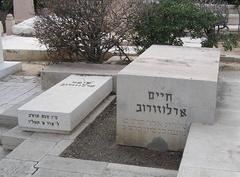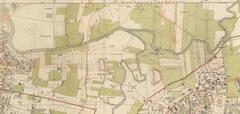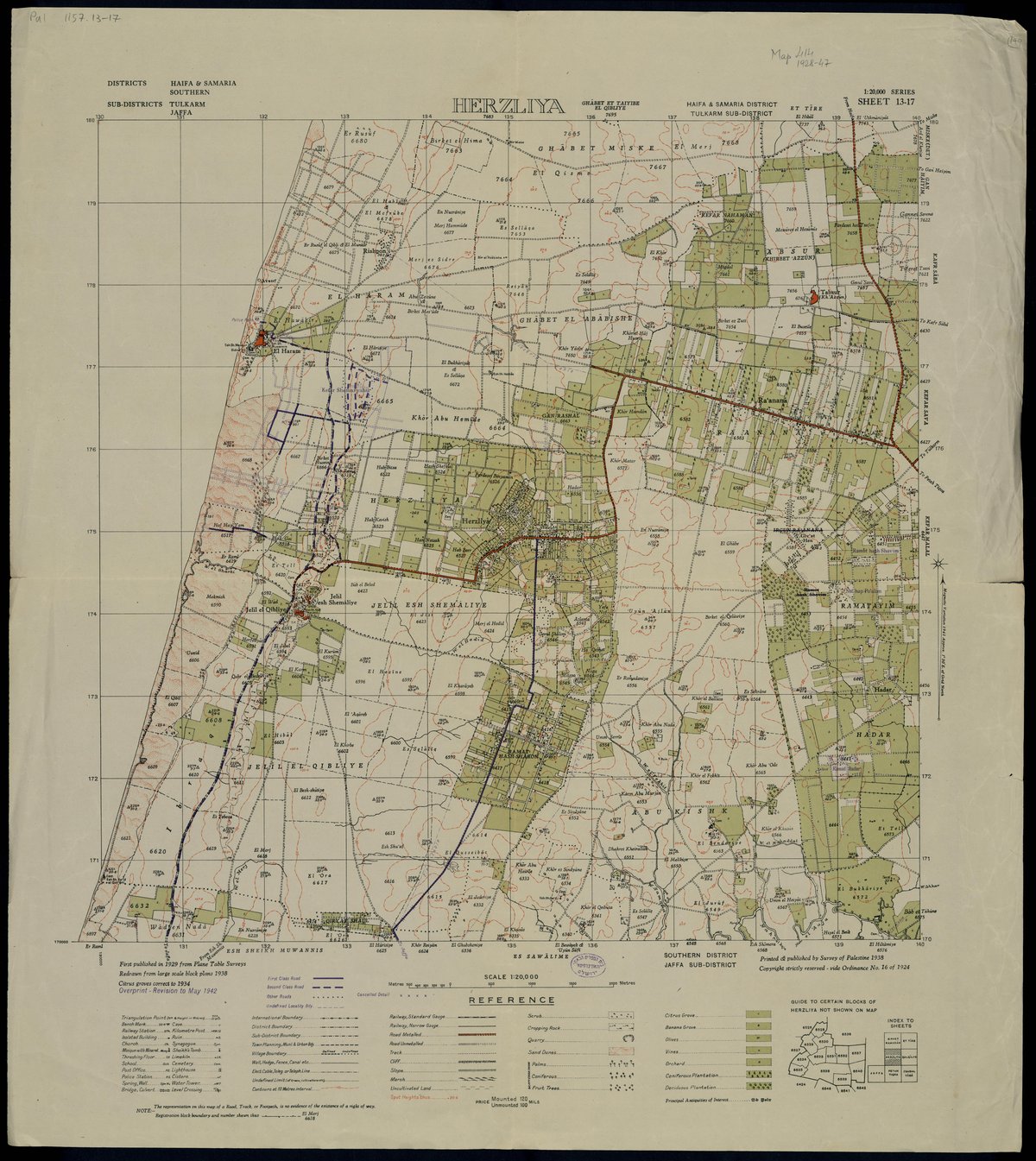
Tell Qasile Visiting Hours, Tickets, and Historical Sites in Tel Aviv
Date: 04/07/2025
Introduction: Tell Qasile’s Significance in Tel Aviv History
Tell Qasile stands as one of Tel Aviv’s most significant archaeological sites, providing a window into the ancient Philistine civilization that flourished in the southern Levant during the Late Bronze and early Iron Ages. Established around the 12th century BCE, Tell Qasile was a strategically located settlement along the Yarkon River, functioning as a bustling port city with advanced urban planning, religious institutions, and economic activity. Its three superimposed Philistine temples, residential quarters, and evidence of extensive trade with Cyprus, Egypt, and the Aegean world highlight Tell Qasile as a hub of cultural exchange. Housed within the Eretz Israel Museum complex, the site not only deepens our understanding of Philistine society but also illuminates the dynamic interactions that shaped the Iron Age Levant.
Today, visitors can explore Tell Qasile alongside museum exhibits, benefiting from guided tours, accessibility accommodations, and educational programs that bring the ancient city to life. Whether you are an archaeology enthusiast, history student, or curious traveler, this guide delivers essential information on visiting hours, tickets, accessibility, nearby attractions, and travel tips for a rewarding experience (Eretz Israel Museum, Eretz Israel Museum Official Website).
Table of Contents
- Origins and Early Settlement
- Archaeological Discoveries
- Historical Significance
- Visiting Tell Qasile: Hours, Tickets, and Travel Tips
- Integration into Modern Tel Aviv
- Conservation and Accessibility
- Key Facts and Figures
- Frequently Asked Questions (FAQ)
- Legacy and Ongoing Research
- Nearby Attractions
- Plan Your Visit and Stay Connected
- References and Further Reading
Origins and Early Settlement
Tell Qasile, located within the Eretz Israel Museum in Tel Aviv, dates back to the 12th century BCE—a time marked by profound cultural and political changes in the Levant. The Philistines, a seafaring people documented in Egyptian records and biblical texts, founded this settlement along the Yarkon River. Excavations reveal a well-planned city with residential quarters, public buildings, and religious structures. The site’s proximity to water, fertile land, and key trade routes made it an attractive location, reflected in its mudbrick houses, storage facilities, and organized urban layout (Eretz Israel Museum).
Archaeological Discoveries
Temples and Religious Life
Among Tell Qasile’s most important finds are three superimposed Philistine temples, dating from the 12th to the 10th centuries BCE. These temples, featuring central halls, side rooms, and courtyards, contain altars and cultic objects such as offering stands, pottery, and figurines. The evidence underscores the significance of religious rituals and provides rare insights into Philistine spiritual practices.
Domestic and Industrial Remains
Excavations have uncovered houses, courtyards, and storage facilities, as well as artifacts like cooking pots, grinding stones, and loom weights, illustrating the daily lives of residents. Industrial installations—wine presses, oil presses, and flour mills—highlight the community’s agricultural and economic pursuits (Eretz Israel Museum).
Trade and Cultural Exchange
Tell Qasile’s riverside location made it an important commercial hub. Archaeologists found imported pottery and luxury goods from Cyprus, Egypt, and the Aegean, indicating robust trade networks and cultural exchange with neighboring regions.
Historical Significance
As one of the earliest and best-preserved Philistine settlements, Tell Qasile offers a rare look at the urban planning, religious life, and material culture of this ancient people. Its temples have greatly informed our understanding of Philistine religion, while evidence of destruction and rebuilding in the 10th century BCE reflects the turbulent regional landscape, including conflicts with neighboring groups and the rise of the Israelite monarchy.
Visiting Tell Qasile: Hours, Tickets, and Travel Tips
- Location: 2 Haim Levanon St., Ramat Aviv, Tel Aviv, within the Eretz Israel Museum complex
- Visiting Hours:
- Sunday to Thursday: 10:00 AM to 5:00 PM
- Friday: 10:00 AM to 2:00 PM
- Closed Saturdays and public holidays (confirm on official website for updates)
- Tickets:
- Adults: ~52–54 ILS
- Children (under 18): Free
- Students/Seniors: Reduced rates (~38 ILS)
- Family and group rates available
- Guided Tours: Available in English and Hebrew; advance booking recommended, especially for groups
- Accessibility: Fully accessible with ramps, paved paths, and accessible parking. Special carts for visitors with mobility difficulties are available by prior arrangement (Accessibility Information).
- Getting There:
- Public transport: Buses serve the Ramat Aviv area; the Tel Aviv University Railway Station is ~1.5 km away.
- By car: Ample parking is available.
- By bicycle: Easily accessible via bike lanes and close to Yarkon Park.
- Facilities:
- Restrooms, café, gift shop, and free Wi-Fi are available on-site.
- No luggage storage; plan accordingly.
- Nearby Accommodation: Numerous hotels and short-term rentals are available in Ramat Aviv and central Tel Aviv (Hikersbay).
Integration into Modern Tel Aviv
Tell Qasile is preserved at the heart of the Eretz Israel Museum, surrounded by modern exhibit spaces and gardens displaying ancient relics. The museum spans approximately 20 acres and includes 15 buildings and installations, providing a multidisciplinary approach to archaeology, ethnography, and local history (Eretz Israel Museum).
Conservation and Accessibility
Long-term conservation efforts have ensured that Tell Qasile remains accessible and informative. The museum’s comprehensive accessibility features—including ramps, parking, and special carts—make the site welcoming to visitors with disabilities (Accessibility Information).
Key Facts and Figures
- Earliest settlement: 12th century BCE
- Major occupation: 12th–10th centuries BCE (Philistine)
- Main discoveries: Three temples, residential and industrial quarters, imported pottery
- Excavation history: Began in the 1940s, led by Benjamin Mazar
- Location: Eretz Israel Museum, 2 Haim Levanon St., Ramat Aviv, Tel Aviv
- Museum area: ~20 acres, 15 buildings
- Accessibility: Fully accessible with special provisions
Frequently Asked Questions (FAQ)
Q: What are the visiting hours for Tell Qasile?
A: Sunday to Thursday, 10:00–17:00; Friday 10:00–14:00; closed Saturdays and holidays (Eretz Israel Museum Official Website).
Q: How can I purchase tickets?
A: Online via the Eretz Israel Museum website or at the entrance; discounts for eligible visitors.
Q: Are guided tours available?
A: Yes, in multiple languages; advance booking recommended.
Q: Is Tell Qasile accessible for people with disabilities?
A: Yes; the site is fully accessible with ramps and special carts on request.
Q: What are nearby attractions?
A: Yarkon Park, Tel Aviv University, Eretz Israel Museum, and the Mediterranean coastline.
Legacy and Ongoing Research
Tell Qasile remains a focal point for archaeological research and public education. Active integration into the Eretz Israel Museum ensures ongoing conservation and interpretation, while exhibitions and educational programs keep the site’s history alive for new generations. Discoveries at Tell Qasile continue to enrich our knowledge of the Philistines and the broader context of ancient Israel and its neighbors.
Nearby Attractions
- Yarkon Park: Adjacent green space offering walking trails, boating, and picnic areas.
- Eretz Israel Museum: Exhibits in archaeology, ethnography, Judaica, and Israeli history.
- Tel Aviv University: Features cultural and scientific attractions.
- Other Historical Sites: Palmach Museum, Yitzhak Rabin Center, Tel Aviv Port.
Plan Your Visit and Stay Connected
To get the most out of your visit, check the Eretz Israel Museum Official Website for up-to-date information, ticketing, and event schedules. For guided tours, audio guides, and the latest updates, download the Audiala app. Follow us on social media for news about special exhibitions and events.
References and Further Reading
- Visiting Tell Qasile: Hours, Tickets, and Exploring Tel Aviv’s Historic Philistine Site, 2025, Eretz Israel Museum
- Visiting Tell Qasile: Hours, Tickets, and Exploring Tel Aviv’s Historic Archaeological Site, 2025, Tel Aviv Municipality and Eretz Israel Museum
- Tell Qasile Visiting Hours, Tickets, and Essential Guide to Tel Aviv Historical Sites, 2025, Hikersbay and Tripclap
- Tell Qasile Archaeological Site in Tel Aviv: Visiting Hours, Tickets, and Historical Insights, 2025, Eretz Israel Museum






